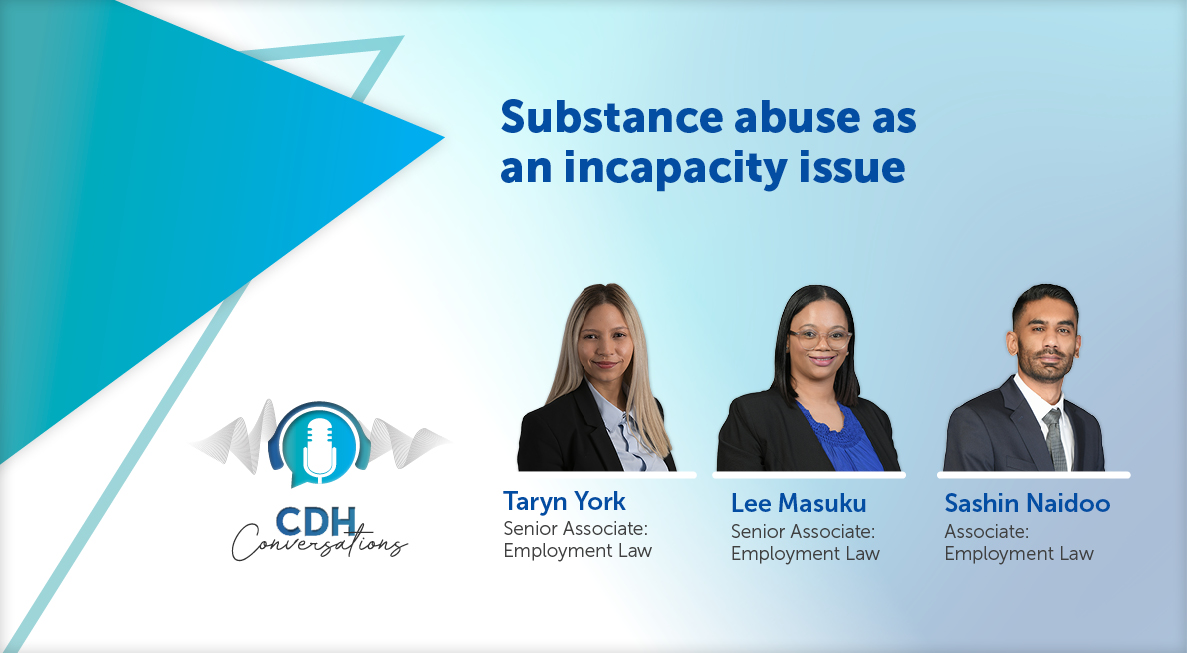Employer Defamation - Can an employee be defamed during a workplace investigation?
At a glance
- The plaintiff was a professor employed at Nelson Mandela University’s business school. She received correspondence from two senior colleagues which stated that they had been made aware of an anonymous complaint that indicated that she was involved in unethical conduct relating to her administration of research and the academic work submitted by students under her supervision.
- Pertinent in this regard was the court’s finding that the people who drafted and despatched the correspondence were motivated by malice because they did not believe the allegations to be true or were reckless with the veracity of the allegations. Furthermore, the statement in the correspondence that the employee “conducted [herself] in a manner that does not accord with the ethics and values” of the institution was based on a superficial investigation.
- The case of Clover SA (Pty) Limited and Another v Sintwa [2016] 12 BLLR (HC) dealt with a case of defamation that was initiated following arbitration proceedings. A former employee of Clover referred an unfair dismissal dispute to the Commission for Conciliation, Mediation and Arbitration (CCMA). Clover had dismissed the former employee after finding that he was guilty of committing acts of misconduct (i.e. fraud and gross negligence)
Following the 2016 judgment in Clover SA (Pty) Ltd & Another v Sintwa (2016) 12 BLLR (HC), the recent judgment of Cullen v Jonas and Another (3027/2021) ZAECBHC, the High Court had to consider the elements of defamation, with an emphasis on the meaning of “publication”. The court defined “publication” as “the communication or making known of the defamatory statement to a person other than the plaintiff”.
The plaintiff was a professor employed at Nelson Mandela University’s business school. She received correspondence from two senior colleagues which stated that they had been made aware of an anonymous complaint that indicated that she was involved in unethical conduct relating to her administration of research and the academic work submitted by students under her supervision. The correspondence concluded that, based on the complaints, the employee conducted herself “in a manner that does not accord with the ethics and values of [the] institution”. The employee was provided with 48 hours to furnish her representations to the accusations.
The employee expressed shock upon receipt of the correspondence and shared the content with another colleague for guidance, and with the dean and deputy dean to inform them of the serious accusations and to tell them that she was in the process of seeking legal advice. The deans in turn shared it with the Deputy Vice Chancellor for Learning. Over the course of the next few months, the document was circulated among various union and university officials.
The High Court found that publication had taken place in this case due to the transmission of correspondence by the employee to her trade union and more senior members of staff at the university. Furthermore, and pertinently, the court found that, based on the probabilities, the people who drafted and despatched the correspondence knew, or there was a reasonable expectation that they were aware, that it would have been likely that the employee would share the letter with the above personnel. Pertinent in this regard was the court’s finding that the people who drafted and despatched the correspondence were motivated by malice because they did not believe the allegations to be true or were reckless with the veracity of the allegations. Furthermore, the statement in the correspondence that the employee “conducted [herself] in a manner that does not accord with the ethics and values” of the institution was based on a superficial investigation. Accordingly, the transmission of the correspondence exceeded the bounds of qualified privilege and constituted publication of defamatory material.
The defence of qualified privilege is when “one person publishes a statement in the discharge of a duty of the protection of a legitimate interest to another person who has a similar duty or interest to receive it”. However, the intention and knowledge of the person publishing the statement, or their reasonable awareness that the statement will probably be published, can be taken into account. Accordingly, if the person responsible for the publication of the statement knows the content to be inaccurate or is motivated by malice then this may negatively affect a defence on the grounds of qualified privilege.
Clover case
The case of Clover SA (Pty) Limited and Another v Sintwa [2016] 12 BLLR (HC) dealt with a case of defamation that was initiated following arbitration proceedings. A former employee of Clover referred an unfair dismissal dispute to the Commission for Conciliation, Mediation and Arbitration (CCMA). Clover had dismissed the former employee after finding that he was guilty of committing acts of misconduct (i.e. fraud and gross negligence). The CCMA found that he was not guilty of fraud, only negligence, and that the dismissal was substantively unfair. The former employee approached the High Court, bringing a claim of defamation against Clover.
The High Court ruled in the former employee’s favour, indicating that the charges brought against him were irrelevant and unconnected to the arbitration proceedings. This decision was overturned on appeal on the basis that there was no malice and that the statements were relevant to the matter and supported by reasonable grounds. This constituted a sufficient defence for Clover.
In a workplace context, an employer may want to consider the implications of these judgments, particularly when investigating allegations that have been levelled against an employee. In these instances, an employer should be cautious about publishing material, particularly during an investigation process, especially if the employer can reasonably expect the recipient to share the content and if there is no objective reason that requires the protection of a legitimate interest through the publication of such material.
Further, employers are advised to carefully determine whether the charges being levelled against an employee can be substantiated and are relevant to the workplace.
The information and material published on this website is provided for general purposes only and does not constitute legal advice. We make every effort to ensure that the content is updated regularly and to offer the most current and accurate information. Please consult one of our lawyers on any specific legal problem or matter. We accept no responsibility for any loss or damage, whether direct or consequential, which may arise from reliance on the information contained in these pages. Please refer to our full terms and conditions. Copyright © 2026 Cliffe Dekker Hofmeyr. All rights reserved. For permission to reproduce an article or publication, please contact us cliffedekkerhofmeyr@cdhlegal.com.
Subscribe
We support our clients’ strategic and operational needs by offering innovative, integrated and high quality thought leadership. To stay up to date on the latest legal developments that may potentially impact your business, subscribe to our alerts, seminar and webinar invitations.
Subscribe




